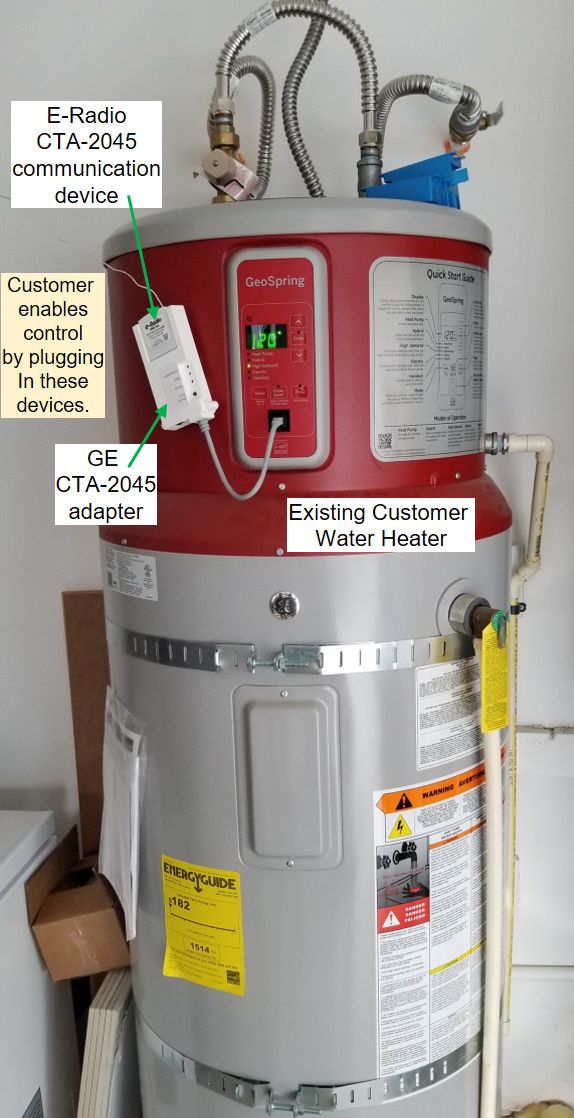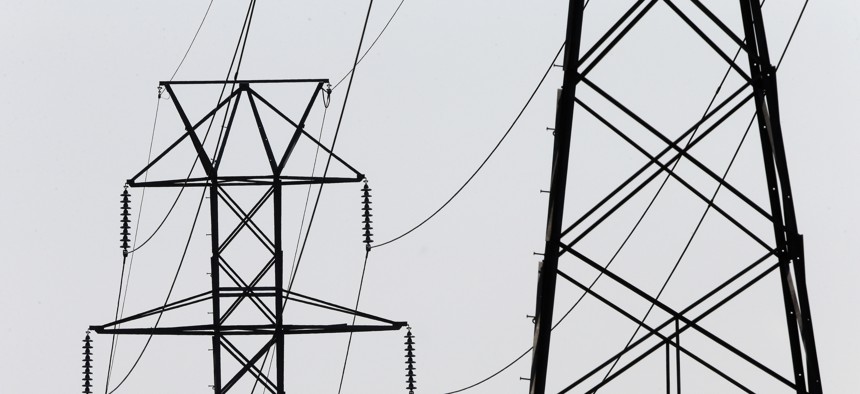Connecting state and local government leaders
A pilot study in the Pacific Northwest shows the promise of “the unexpected battery in your basement.”
PORTLAND, Ore. — In the largest pilot study of its kind to date, more than 270 households in the Pacific Northwest volunteered their hot water heaters over the past year to be used as a battery for the power grid. Participants installed plug-in devices that allowed their water heaters to be controlled remotely, both starting and stopping the heating of water when ordered to by the grid operator.
According to a report on the joint program between Portland General Electric and the Bonneville Power Administration, the success of the pilot study has national implications. If fleets of water heaters, like fleets of electric vehicles, can be harnessed to shift excess electricity from wind and solar power on command, then water could be heated at times when energy on the grid is more abundant—and cheaper.
Equally, if these same fleets of water heaters could be instructed to not heat at times of peak demand, that frees up power when energy is scarce, and more expensive. More broadly, this could reduce the amount of energy storage we will need to build as the power grid evolves in an era of renewables.
Centered on customers from eight local utilities in Seattle, Portland, and the Tri-Cities region in eastern Washington state, the study was a substantial undertaking. Over 92 percent of the program’s participants expressed satisfaction with the trial.
“Every stage required a lot of work: lining up vendors, testing the hardware, choosing marketing materials for customers, and educating our participating utilities,” said Conrad Eustis of Portland General Electric (PGE), who was primary lead co-investigator with Tony Koch, at Bonneville Power Administration (BPA). “Settling on an analysis method that would yield useful results, that in particular took much more time than we expected.”
Operationally, the study relied on the ability of smart-grid enabled water heaters to be fitted with a hybrid communication device: an FM radio frequency receiver that would take the start-and-stop heating signals—at times chosen by the utility—and a WiFi device that could relay all the associated data for analysis. These interactions are called “events” and over the course of three seasons—summer, winter and spring—the program generated over 600 events.
One concept that often trips people up when thinking about using water heaters as batteries is that water heaters are not, in fact, batteries. An electric vehicle has a battery, so it’s easy to see how an EV could be used to take, and give back, energy to the grid. Scale that up to millions of vehicles, and now you have a very large battery to charge up, or discharge, at opportune times.
But how does this work with a humble appliance, like a water heater? Moreover, in the PGE-BPA study, the majority of the 600 test events consisted of a signal sent to customer water heaters to simply not start heating. “Don’t heat now!”—says the signal (by the way, we’’ll heat you up a bit later). To most, this may sound minor. After all, the water heater is not, in fact, putting energy back into the grid. But, it might as well be.
“You see, this has the exact same effect as an actual battery,” Eustis said. “I mean, what do you do with a battery? You choose when you put energy in, and you choose when you take it out. So simply choosing not to use as much energy is equivalent to taking energy out of a battery. The heater goes cold. Later, when we have that cold water at hand, we can choose to put excess energy back in from the grid, from solar for instance, to heat it up. From the viewpoint of the grid, it’s identical to a battery.” In other words, a fleet of water heaters can be used as a virtual battery.
Eustis has been interested in energy storage, and in particular the potential of water heaters, for over a decade. To help educate the public more fully on the transformation of such appliances, Eustis has coined the word alonetic, to mean devices that can, at times, beneficially support the operation of the power grid—as long as the needs of customers are met first. The support comes in the form of “events” when communication, or any method of control, activates these devices into service.

Under this umbrella term, devices that can both take and return power to the grid in both directions, or only take power from the grid in just one direction, are beneficial when paired with smart-capability that allows these events to occur either at the choosing of the local utility, or the customer. For this study, the program designers chose an internet-of-things device from e-Radio that plugged in to capable water heaters, turning them into a smart-grid device.
These capabilities are already appearing in Europe and in the U.S. with electric vehicles. eMotorWerks, a Silicon Valley based EV charging company, bundles up the charging preferences of its customers, for example, and works with the California grid operator, CAISO, to strike favorable prices on their behalf. This is called demand-shifting, or demand-response , and at scale it’s enormously helpful to the system. Typically, the customer sets the parameters. But both the customer, and the power grid, benefit.
The Rocky Mountain Institute (RMI) has described the potential of water heaters, or specifically grid-integrated-water-heaters (GIWH), as “the unexpected battery in your basement,” adding that GIWH may be “as sexy as Tesla.”
An RMI report in 2015 estimated the total potential value to the grid from these integrated appliances, water heaters especially, at a minimum of $13 billion. Why might that be? Well, power prices follow the laws of supply and demand, and therefore fluctuate, often to a great degree, throughout the day. This was true even before the rise of wind and solar power, but those two technologies have started to make pricing fluctuations more extreme.
In California and Texas, for example, wholesale power prices can now go to zero, or even negative, during the day when solar power creates surpluses, or overnight with wind. These events represent large economic losses across the nodes of the system. To counter those losses, society will have to pair energy storage with the rise of renewables but at great expense. But if software-enabled tools can utilize existing devices for storage, at scale, then large portions of those investment costs can be avoided.
“Most homes in the future will likely have a central-energy-manager,” Eustis said. And it’s easy to imagine this trend already, with electric cars, rooftop solar, a home battery, and also grid-integrated devices now coming on to the scene. One issue that policymakers will have to confront is the technology standard that enable these devices to talk to one another. The PGE-BPA study utilized a standard that, like the USB standard that allows a laptop to connect to a mouse, tied the waters heaters to a radio device. It’s called CTA-2045, and one of the conclusions of the study is that to to use water heaters in the future as a virtual battery, they’ll need to ship from the factory with a common standard.
The US has roughly 125 million households. Harnessing each of those water heaters as an energy storage solution could eventually scale up to major cost savings as the country modernizes its power grid.
PREVIOUSLY on Route Fifty:
Gregor Macdonald is a journalist who regularly covers cities, climate and energy. He is based in Portland, Oregon.

NEXT STORY: San José Offers a Scooter Ultimatum



